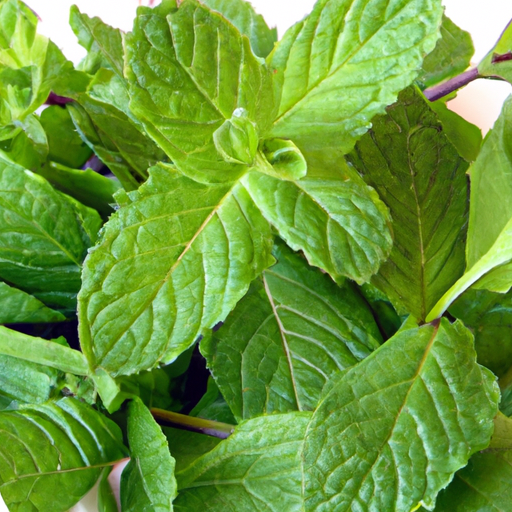Do you ever wonder if there are any natural ways to help with weight loss? Well, I’ve got some good news for you! Did you know that there are actually herbs that can assist you on your weight loss journey? Yup, it’s true! In this article, we’re going to dive deep into the world of herbs and how they can be a helpful addition to your weight loss routine.
So, let’s talk about these magical herbs, shall we? First up, we have green tea. Not only is it delicious and refreshing, but it’s also packed with powerful antioxidants that can boost your metabolism and help burn fat. Plus, it can provide a nice little energy boost to keep you going throughout the day. But that’s just the tip of the iceberg! There are so many more herbs that can aid in weight loss, such as ginger, cayenne pepper, and cinnamon. These herbs can help suppress your appetite, increase your body’s ability to burn calories, and even regulate your blood sugar levels. So if you’re looking for some natural assistance in shedding those extra pounds, keep reading our article to discover more about the amazing herbs that can help you achieve your weight loss goals.
Overview of Weight Loss Herbs
Commonly Used Herbs for Weight Loss
When it comes to weight loss, we often think about exercise and diet as the two main components. However, incorporating herbs into our weight loss journey can provide numerous benefits. Herbs are natural and safe options that can support metabolism, reduce hunger and cravings, aid in detoxification, and boost energy levels. In this article, we will explore commonly used herbs for weight loss, discuss their potential side effects, and provide tips on how to incorporate them into your weight loss journey.
Benefits of Using Herbs for Weight Loss
-
Natural and Safe Approach One of the major advantages of using herbs for weight loss is that they offer a natural and safe approach. Unlike synthetic weight loss supplements, herbs are derived from plants and contain natural compounds that can support your weight loss goals without causing harm to your body.
-
Supports Metabolism Many herbs have been found to support a healthy metabolism. For example, green tea contains catechins, which are antioxidants that have been shown to increase fat oxidation and boost metabolism. By incorporating herbs like green tea into your daily routine, you can give your metabolism a natural boost and enhance your body’s ability to burn calories.
-
Reduces Hunger and Cravings One of the biggest challenges in weight loss is managing hunger and cravings. Some herbs, such as Garcinia Cambogia, Forskolin, and Dandelion, have appetite-suppressing properties that can help you control your food intake. These herbs can make you feel fuller for longer, reducing the likelihood of overeating and snacking on unhealthy foods.
-
Aids in Detoxification Detoxification plays a crucial role in weight loss. Herbs like Turmeric and Cayenne Pepper have detoxifying properties that can support your body’s natural cleansing processes. By eliminating toxins and waste from your body, you can improve digestion, enhance nutrient absorption, and promote overall wellness.
-
Boosts Energy Levels Weight loss can sometimes leave you feeling tired and fatigued. Fortunately, there are herbs that can provide a natural energy boost. For instance, Cayenne Pepper contains capsaicin, a compound known for its thermogenic properties that can increase energy expenditure and enhance fat burning. By incorporating energizing herbs into your routine, you can stay motivated and maintain an active lifestyle.
Potential Side Effects of Weight Loss Herbs
While using herbs for weight loss can be beneficial, it’s important to be aware of potential side effects. Here are some common side effects to consider:
-
Possible Allergic Reactions Just like any other natural product, herbs can cause allergic reactions in some individuals. It’s important to be aware of any allergies you may have and to consult with a healthcare professional before starting any herbal supplements.
-
Digestive Issues Some herbs, such as Dandelion, Turmeric, and Cayenne Pepper, may cause digestive issues like stomach upset, diarrhea, or indigestion in some individuals. If you experience any discomfort or digestive issues while using herbs, it’s best to discontinue use and consult with a healthcare professional.
-
Interactions with Medications Certain herbs may interact with medications you are currently taking. For example, Turmeric can interfere with blood-thinning medications, and Garcinia Cambogia may interact with antidepressants. It’s crucial to inform your healthcare professional about any herbs you plan to incorporate into your weight loss journey to avoid any potential interactions.
-
Pregnancy and Breastfeeding Concerns If you are pregnant or breastfeeding, it’s essential to exercise caution when using herbs for weight loss. Some herbs may have adverse effects on pregnancy or may be transferred to the baby through breast milk. It’s best to consult with a healthcare professional before using any herbs during this time.
Incorporating Herbs into Your Weight Loss Journey
Now that we have discussed the benefits and potential side effects of weight loss herbs, let’s explore some tips on incorporating them into your weight loss journey:
-
Consulting with a Healthcare Professional Before starting any herbal supplements, it’s important to consult with a healthcare professional. They can evaluate your medical history, allergies, and current medications to ensure that the herbs you choose are safe and suitable for your specific needs.
-
Learning Proper Dosage and Usage Each herb has its own recommended dosage and usage. It’s crucial to follow these guidelines to avoid any potential adverse effects. Your healthcare professional or a qualified herbalist can provide you with the necessary information on how to properly use the herbs for weight loss.
-
Combining Herbs with a Balanced Diet While herbs can support weight loss, they are not a magic solution. It’s important to combine the use of herbs with a balanced diet that includes a variety of nutrient-dense foods. Focus on incorporating whole grains, lean proteins, fruits, vegetables, and healthy fats into your meals to support overall health and weight loss.
-
Considering Exercise and Lifestyle Changes Weight loss herbs can enhance the effects of exercise and lifestyle changes. Engaging in regular physical activity and making sustainable lifestyle changes like reducing stress, improving sleep quality, and managing portion sizes can significantly contribute to your weight loss journey.
Exploring Additional Weight Loss Strategies
In addition to incorporating herbs into your weight loss journey, there are other strategies you can try to optimize your results:
-
Understanding Caloric Deficit Weight loss occurs when you create a caloric deficit, which means you consume fewer calories than you burn. Tracking your calorie intake and ensuring that you are in a deficit can help accelerate your weight loss progress.
-
Meal Planning and Portion Control Planning your meals in advance and practicing portion control can help you make healthier choices and manage your calorie intake. Aim for a well-balanced plate that includes a variety of nutrients and appropriate portion sizes.
-
Stress Management and Sleep Quality Stress and poor sleep can hinder weight loss progress. Implement stress management techniques such as meditation, yoga, or deep breathing exercises. Prioritize getting enough sleep to support your overall well-being and weight loss efforts.
-
Increasing Physical Activity Incorporate regular physical activity into your routine to boost calorie burning and support weight loss. Aim for a combination of cardiovascular exercises, strength training, and flexibility exercises for a well-rounded approach.
Lifestyle Tips for Sustainable Weight Loss
Here are some additional lifestyle tips to ensure sustainable weight loss:
-
Drinking Sufficient Water Stay hydrated by drinking adequate water throughout the day. Water can help control appetite, support digestion, and promote overall health. Aim to drink at least 8 glasses of water per day.
-
Limiting Processed Foods and Added Sugars Processed foods and added sugars are often high in calories and low in nutrients. Limit your consumption of these foods and focus on whole, unprocessed foods to support weight loss and overall health.
-
Getting Sufficient Nutrients When aiming to lose weight, it’s important to ensure you are still getting all the necessary nutrients your body needs. Incorporate a variety of fruits, vegetables, whole grains, lean proteins, and healthy fats into your diet to meet your nutrient requirements.
-
Practicing Mindful Eating Pay attention to your hunger and fullness cues while eating. Slow down, savor each bite, and listen to your body’s signals to avoid overeating and make healthier food choices. Mindful eating can help you build a healthier relationship with food and support sustained weight loss.
Personalizing Your Weight Loss Journey with Herbs
Every individual is unique, and what works for one person may not work for another. When incorporating herbs into your weight loss journey, it’s important to identify your individual needs and goals. Experiment with different herbs and observe how your body responds. Keep track of your progress and adjust your approach as necessary.
Success Stories and Testimonials
Real-life experiences can often serve as inspiration and motivation for our own weight loss journeys. Many people have successfully incorporated weight loss herbs into their routines and have achieved impressive results. Their stories serve as a reminder that herbs can be a valuable tool in achieving and maintaining a healthy weight. Remember, success will vary among individuals, so it’s important to listen to your body and find the right combination of herbs that work for you.
Conclusion
Embracing the power of herbs for weight loss offers a natural and safe approach to achieving your weight loss goals. By incorporating herbs into your routine, you can support your metabolism, reduce hunger and cravings, aid in detoxification, and boost your energy levels. Remember to consult with a healthcare professional, learn proper dosage and usage, and combine herbs with a balanced diet, exercise, and lifestyle changes for optimal results. With the right herbs and a personalized approach, you can achieve sustainable weight loss and improve your overall well-being.

